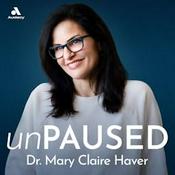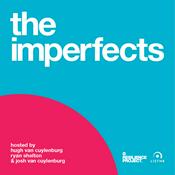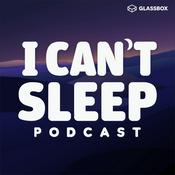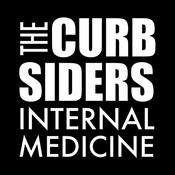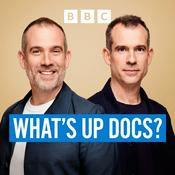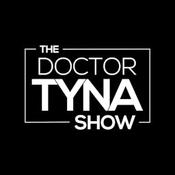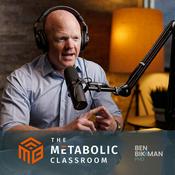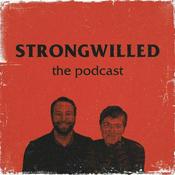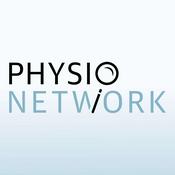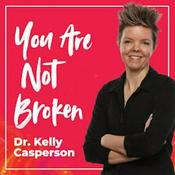178 episodes
- In this episode of the PCOS Repair Podcast, you’ll discover how the symptoms of PCOS are not random disruptions but connected signals from your body. These signs are your body’s way of speaking to you, revealing what it needs in order to function and thrive. You’ll explore how interpreting symptoms like irregular periods, fatigue, and inflammation can guide your next steps in healing, rather than leaving you feeling frustrated and confused.
When PCOS Feels Chaotic and Nothing Seems to Work
If you’ve ever felt like you’re doing everything “right” eating well, exercising, managing stress, but still not seeing results, you’re not alone. This episode breaks down the experience of feeling stuck, stalled, or even like you’re backsliding, and helps you understand why traditional approaches often fail to create lasting results. You’ll hear examples of how your cycle can fluctuate and why exhaustion or symptoms may worsen with standard “healthy” efforts, like working out more or cutting carbs.
Why PCOS Symptoms Are Not Random or Broken
Your body is not broken, and your PCOS symptoms are not meaningless. In this episode, you’ll learn why treating PCOS with a symptom-based medical approach, like birth control, fertility treatments, or calorie restriction, rarely leads to long-term change. Instead, the key is understanding what your body is trying to say through those symptoms. You’ll discover how healing begins when you listen, not when you silence your body.
Real-Life Examples of Misunderstood Symptoms
This episode reframes PCOS, not just as a reproductive issue, but as a metabolic condition that begins deeper in your hormonal system. You’ll learn how estrogen, progesterone, and testosterone are simply messengers responding to signals from your metabolic and stress hormones, such as insulin and cortisol. Addressing these root messengers helps restore balance and alleviate surface symptoms more effectively.
Ever wonder why your intense workouts make you feel worse? Why going low-carb worked for a while, then made things worse? Why you feel off even when your lab results look normal? This episode unpacks each of these scenarios and connects them back to the root causes—transforming what once felt like “failures” into powerful clues your body is offering.
A Clear Path Forward for PCOS Healing
Instead of chasing random advice, you’ll learn how to decode your symptoms and align your lifestyle with what your body actually needs. To help you get started, this episode invites you to take the free PCOS Root Cause Quiz linked in the show notes. This quiz provides a personalized look at which root causes may be affecting your body the most.
If you’re ready for a deeper dive, you’ll also hear how the PCOS Root Cause Bootcamp offers an in-depth assessment and personalized care strategies for lasting transformation.
Your symptoms are not setbacks, they’re signals. Your body is doing its best to adapt, and once you understand what it’s asking for, you can support it in real, sustainable ways.
You can take the quiz to discover your root cause here
Let’s continue the conversation on Instagram!
What did you find helpful in this episode and what follow-up questions do you have?
The full list of Resources & References Mentioned can be found on the Episode webpage at:
https://nourishedtohealthy.com/ep-178 - In this episode of the PCOS Repair Podcast, you’ll explore one of the most common traps many women with PCOS fall into: relying on diet alone as a solution. From strict PCOS meal plans to carb-cutting strategies, the focus often lands solely on food. But long-term relief from PCOS symptoms comes from a holistic lifestyle approach, not just what’s on your plate. This episode breaks down why so many diets fail to deliver lasting results and how a root-cause-focused lifestyle can offer true, sustainable healing.
The Downside of Diet-Only Approaches for Hormone Health
You’ll discover how common PCOS diets, even those labeled “PCOS-friendly,” can lead to temporary results and long-term frustration. From calorie cutting to keto, these methods often ignore the deeper hormonal imbalances driving PCOS symptoms. Diets can lead to stress, guilt, and even muscle loss, worsening hormone regulation. This episode helps shift your mindset away from rigid food rules and toward an empowering, supportive lifestyle that works with your body.
A Root Cause-Based Lifestyle for PCOS Healing
This episode emphasizes the importance of identifying your unique PCOS root causes, whether insulin resistance, inflammation, chronic stress, or hormone and nutrient disturbances. You’ll learn how to listen to your body’s cues, including energy crashes, cravings, brain fog, and sleep disturbances, as powerful indicators of what your hormones need. Rather than following one-size-fits-all food plans, the lifestyle approach invites you to tailor daily routines to truly support your hormonal health.
How to Shift from Diets to Sustainable Daily Habits
You’ll learn how to move from all-or-nothing thinking to a rhythm of daily habits that support your body consistently, even when life gets busy. This episode guides you in letting go of perfectionism and instead focusing on progress. It outlines how routines like consistent sleep, mindful movement, emotional wellbeing, and nourishing meals can create the healing environment your body needs. Even small changes lead to real results, and this mindset shift makes your PCOS journey more manageable and even enjoyable.
Embracing Your Body and Finding Your Flow
Instead of fighting your body or feeling stuck in a cycle of restriction, you’ll learn how to work with your body’s signals. This episode empowers you to become the expert on your own health, helping you build confidence, resilience, and calm as you navigate PCOS. Healing takes time, but when you move from restrictive diets to hormone-supportive routines, the transformation is not only effective but sustainable.
If you’ve felt confused by all the plans and protocols out there, this episode is your invitation to come back to your body and start supporting it in a way that’s realistic, lasting, and truly healing.
You can take the quiz to discover your root cause here
Let’s continue the conversation on Instagram!
What did you find helpful in this episode and what follow-up questions do you have?
The full list of Resources & References Mentioned can be found on the Episode webpage at:
https://nourishedtohealthy.com/ep-177 - In this supplement spotlight episode of the PCOS Repair Podcast, you will learn why folate is one of the most essential nutrients for women with PCOS—especially when it comes to hormone balance, mood support, and fertility. Whether you're preparing for pregnancy, currently expecting, or simply aiming to improve your hormone health, this episode breaks down everything you need to know about folate, including how it works in the body and why not all forms of folate are beneficial.
Folate’s Role in Fertility, Hormone Balance, and Methylation
You will discover how folate, also known as vitamin B9, supports healthy ovulation, egg quality, and early fetal development, making it a critical nutrient before and during pregnancy. Beyond fertility, folate plays a key role in DNA synthesis, cell repair, red blood cell production, and hormone metabolism. You’ll also learn how it helps reduce elevated homocysteine levels, which are often linked to inflammation and miscarriage risk in women with PCOS.
Why the Form of Folate Matters: Folic Acid vs. L-Methylfolate
In this episode, you’ll explore the common MTHFR gene mutation that affects up to 60% of women and learn why folic acid, the synthetic form found in most prenatal vitamins, may not be effective for many individuals. You’ll discover why L-methylfolate or 5-MTHF is the preferred and most bioavailable form, especially for those with MTHFR mutations, and how unmetabolized folic acid can actually increase hormone imbalances, fatigue, and inflammation.
How to Choose a Quality Folate Supplement
You’ll gain practical guidance on how to read supplement labels, which forms of folate to look for, and what to avoid. This episode breaks down recommended dosages and explains why methylated B-complex or prenatal formulas that include B6, B12, and L-methylfolate are often the most effective. You’ll also get tips on how to identify reputable brands and ensure your supplements are third-party tested for safety and effectiveness.
Final Thoughts on Folate and PCOS
This episode wraps up by emphasizing that folate is not just a fertility supplement, it’s a foundational nutrient that supports many aspects of PCOS healing. You’ll walk away with a clear understanding of why folate matters, how to choose the right form and dose, and how to integrate it into your holistic hormone health plan. Be sure to check out the free PCOS Supplement Guide linked in the show notes and consult your healthcare provider for personalized support.
You can take the quiz to discover your root cause here
PCOS Supplement Guide
Let’s continue the conversation on Instagram!
What did you find helpful in this episode and what follow-up questions do you have?
The full list of Resources & References Mentioned can be found on the Episode webpage at:
https://nourishedtohealthy.com/ep-176 - In this episode of the PCOS Repair Podcast, you will take a step back and explore what it truly means to heal from PCOS in a holistic, whole-body way. While it’s tempting to zero in on one area, like nutrition, supplements, or lab results, lasting success comes from weaving together all aspects of your health: mind, body, and environment. If you've been feeling stuck or like you're doing everything “right” but still not seeing results, this episode will help you identify where your healing journey may be out of balance and how to refocus your efforts for long-term change.
What Holistic PCOS Healing Really Means
The word "holistic" is often used in health circles, but in this episode, you’ll discover what it actually looks like when applied to PCOS recovery. You’ll explore how nutrition, movement, stress regulation, mindset, and all aspects of your environment work together to create a healing atmosphere. This episode helps you move beyond fragmented efforts and build a strong foundation for sustainable progress.
The Pillars of Whole-Body PCOS Recovery
You’ll walk through the eight key areas that support whole-body healing for PCOS. These include identifying your root cause, assessing your nutrition habits, exploring your relationship with movement, and learning how stress, both visible and hidden, can sabotage your hormone balance. You’ll also examine the importance of emotional wellness and mindset, when and how to integrate supplements or medical therapies, how to approach fertility treatments, and why avoiding a fragmented approach is crucial.
How to Use Supplements and Fertility Interventions Strategically
Rather than jumping straight into pills or procedures, this episode highlights how to use supplements and fertility treatments more effectively by laying the proper groundwork first. You’ll learn why supplements and medications are only helpful when layered on top of a healthy lifestyle and why fertility interventions are more successful when preceded by simple, consistent lifestyle changes.
Creating a Unified Plan for Lasting PCOS Results
You’ll learn how to stop piecing together random advice from social media and instead build a personalized, step-by-step plan that reflects your unique needs and root causes. Whether you're working with multiple practitioners or just following advice online, this episode emphasizes the importance of filtering information through the lens of a unified, whole-body approach.
You’ll leave this episode with a bird’s-eye view of what your PCOS healing journey can look like when all the puzzle pieces start to fit together. You’ll learn how to stop bouncing between quick fixes and start making sustainable changes that help you feel vibrant, energized, and at home in your body again.
You can take the quiz to discover your root cause here
Let’s continue the conversation on Instagram!
What did you find helpful in this episode and what follow-up questions do you have?
The full list of Resources & References Mentioned can be found on the Episode webpage at:
https://nourishedtohealthy.com/ep-175 - In this episode of the PCOS Repair Podcast, you will explore how to shift your mindset around physical activity, especially during seasons when time and energy feel limited. As the holidays approach, exercise can often fall to the bottom of the priority list. But instead of viewing movement as one more obligation or punishment, this episode invites you to reframe it as a nurturing part of your lifestyle that supports hormone balance, emotional wellbeing, and sustainable energy.
How Your Mindset Around Exercise Affects Your Hormones
You will discover how your personal beliefs and emotional relationship with movement play a significant role in whether or not you stay consistent. Whether you rely on exercise to manage stress, avoid it altogether, or feel too busy to make time for it, this episode will guide you through practical mindset shifts. You’ll learn how to move away from shame, guilt, and pressure, and toward a mindset that views exercise as a tool to support, not fight, your body.
The Benefits of Movement Beyond Weight Loss
Instead of focusing on calories or weight loss, this episode highlights how movement improves insulin sensitivity, supports hormonal regulation, and elevates mood. You’ll discover how even gentle activity, like walking or stretching, can boost feel-good neurotransmitters, improve sleep, reduce cravings, and enhance your cycle health. You’ll also hear how customizing your workouts based on your energy levels can help you stay consistent and avoid burnout.
Building a Supportive, Joyful Exercise Routine
The true takeaway from this episode is that exercise doesn’t need to feel like a chore. When you begin to view it as a gift to yourself, something that builds physical and mental strength, movement becomes a powerful and enjoyable part of your daily routine. This episode offers the encouragement and perspective shift needed to move forward with grace, energy, and consistency in your PCOS healing journey.
You can take the quiz to discover your root cause here
Let’s continue the conversation on Instagram!
What did you find helpful in this episode and what follow-up questions do you have?
The full list of Resources & References Mentioned can be found on the Episode webpage at:
https://nourishedtohealthy.com/ep-174
More Health & Wellness podcasts
Trending Health & Wellness podcasts
About The PCOS Repair Podcast
Welcome to The PCOS Repair Podcast! I'm Ashlene Korcek, and each week I'll be sharing the latest findings on PCOS and how to make practical health changes to your lifestyle to repair your PCOS at the root cause.If you're struggling with PCOS, know that you're not alone. In fact, it's estimated that one in ten women have PCOS. But the good news is that there is a lot we can do to manage our symptoms and live healthy, happy lives.So whether you're looking for tips on nutrition, exercise, supplements, or mental health, you'll find it all here on The PCOS Repair Podcast. Ready to get started? Hit subscribe now
Podcast websiteListen to The PCOS Repair Podcast, Sleep Magic: Sleep Hypnosis & Meditation for Sleep Podcast and many other podcasts from around the world with the radio.net app
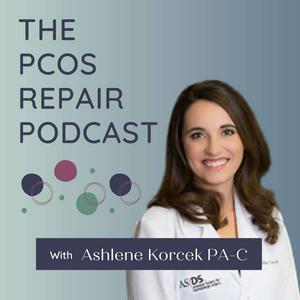
Get the free radio.net app
- Stations and podcasts to bookmark
- Stream via Wi-Fi or Bluetooth
- Supports Carplay & Android Auto
- Many other app features
Get the free radio.net app
- Stations and podcasts to bookmark
- Stream via Wi-Fi or Bluetooth
- Supports Carplay & Android Auto
- Many other app features


The PCOS Repair Podcast
Scan code,
download the app,
start listening.
download the app,
start listening.



